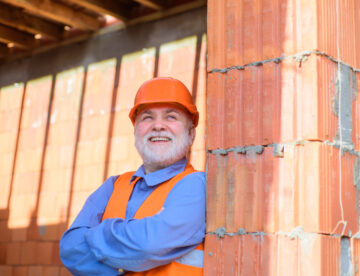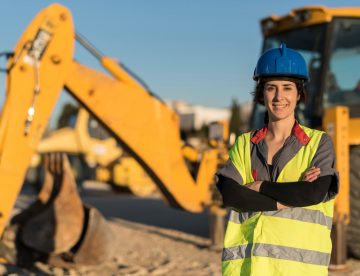
At least two online media outlets have just published articles about Sheriff Construction, recognising our company as one of the leading installers and suppliers of flat-roofing systems and brickwork services in the UK.
Both the UK Herald and London Journal picked up the story of our 17 years in the industry and recent success, noting the national recognition our company has gained for delivering exceptional work on commercial and residential projects and for our pursuit of innovation. Read the full story in this week’s blog.

Whilst modern techniques, tools and innovations have brought some changes to the way on-site construction workers perform their duties, they still generally have to carry out physically demanding tasks in sometimes harsh conditions.
Day after day, year after year, you might think that surely such labour takes its toll, so how is it the case that, even as the workforce ages, a great many construction workers remain physically able to handle the strain? The answer it appears is because they have ‘physical wisdom’. Find out what this means in this week’s blog.

When working as part of a team, it is almost inevitable that, at some point, you’ll experience a situation involving conflict – a difference of opinion, a misunderstanding or possibly an outright argument with a colleague.
This is often because, although you may be working towards a shared goal, most teams are made up of people from diverse backgrounds with different personalities, perspectives and opinions. However, conflict doesn’t have to be seen as wholly negative as, if it’s handled well, it can actually be an opportunity for healthy debate, personal growth and support innovation. See if you can achieve this by following our six conflict resolution tips.

Twelve members of Sheriff’s top team have just returned from a five day trip to Dubai, a reward from the company for all their hard work and loyalty over recent years!
Including Company Directors, Contract Managers, Site Managers and Foremen, the team were treated to a stayover in a five star hotel plus an itinerary of site seeing trips and meals out.
Find out more about what they got up to in this week’s blog.

In a single year, the UK generates 67.8 million tonnes of non-hazardous Construction and Demolition waste, a figure that represents 62% of the nation’s total waste output.
This waste is made up of all kinds of products – concrete bricks, tiles, ceramics, insulation, wood, glass, plastic, bituminous mixtures, cement, gypsum, paints, varnishes, soil, stones, coal, tar, cables, pipes, adhesives and sealants – to name a few!
While much of this is recovered, taking action to reduce construction waste has proven to be good, not only for the environment, but also for business. Keep reading to find out more…

The cost of living crisis is something that’s repeatedly filling our news streams with reports of how this is affecting people, businesses and whole industries.
Now, it has been revealed that, during 2022, high levels of inflation on building materials has made its mark on the UK’s construction sector – taking the total cost of construction output for the year to a record level of £204bn.
Read on for more on this story as well as what the experts are predicting for 2023…

Having a well-functioning team is one of the most important factors which the success of any construction project relies on.
It’s how people from all kinds of backgrounds, with different skills and experience, find a way to work and cooperate with each other to reach a common goal; and how they maintain high levels of productivity, alongside excellent quality control and safety practices.
However, achieving and maintaining great teamwork does require some effort so, in today’s blog, we’ve got five tips for you.

Sheriff Construction is delighted to announce that we’ve just secured our biggest brickwork contract to date. Valued at just over £6.1m, the deal will see our team supporting a major UK housebuilder at 5-acre regeneration site in Woolwich, London.
This is a significant win for Sheriff Construction as it cements the strong relationship we’ve built up with this client (who we’re not naming right now due to our protocols around confidentiality) and will provide our team with at least 2-years’ worth of secure work. The contract is also among the first to be secured since our company restructured, meaning the job will be managed through our sister company, Sheriff Brickworks. Read this week’s blog to find out more.

A new technology, using flying robots (drones) that work cooperatively like bees, might soon be something we see in use on a construction site.
Imitating some of the methods used by nature’s airborne builders, the technology (which has so far been tested in a lab) could ultimately be used for manufacturing and building – particularly in difficult-to-access or dangerous locations such as tall buildings or help with post-disaster relief works.
Take a look at this week’s blog to find out more…

A new England-wide employment scheme is looking to encourage more women to join the residential construction workforce and especially to go into site management roles.
Launched by the Home Builders Federation and the not-for-profit organisation, Women Into Construction, the scheme is offering women work placement opportunities on sites with access to support with childcare and training costs. The hope is that this will have the duel effect of reducing skills shortages in the industry and rebranding construction as a rewarding and practical career opportunity for people from all walks of life. Read on for more details…
